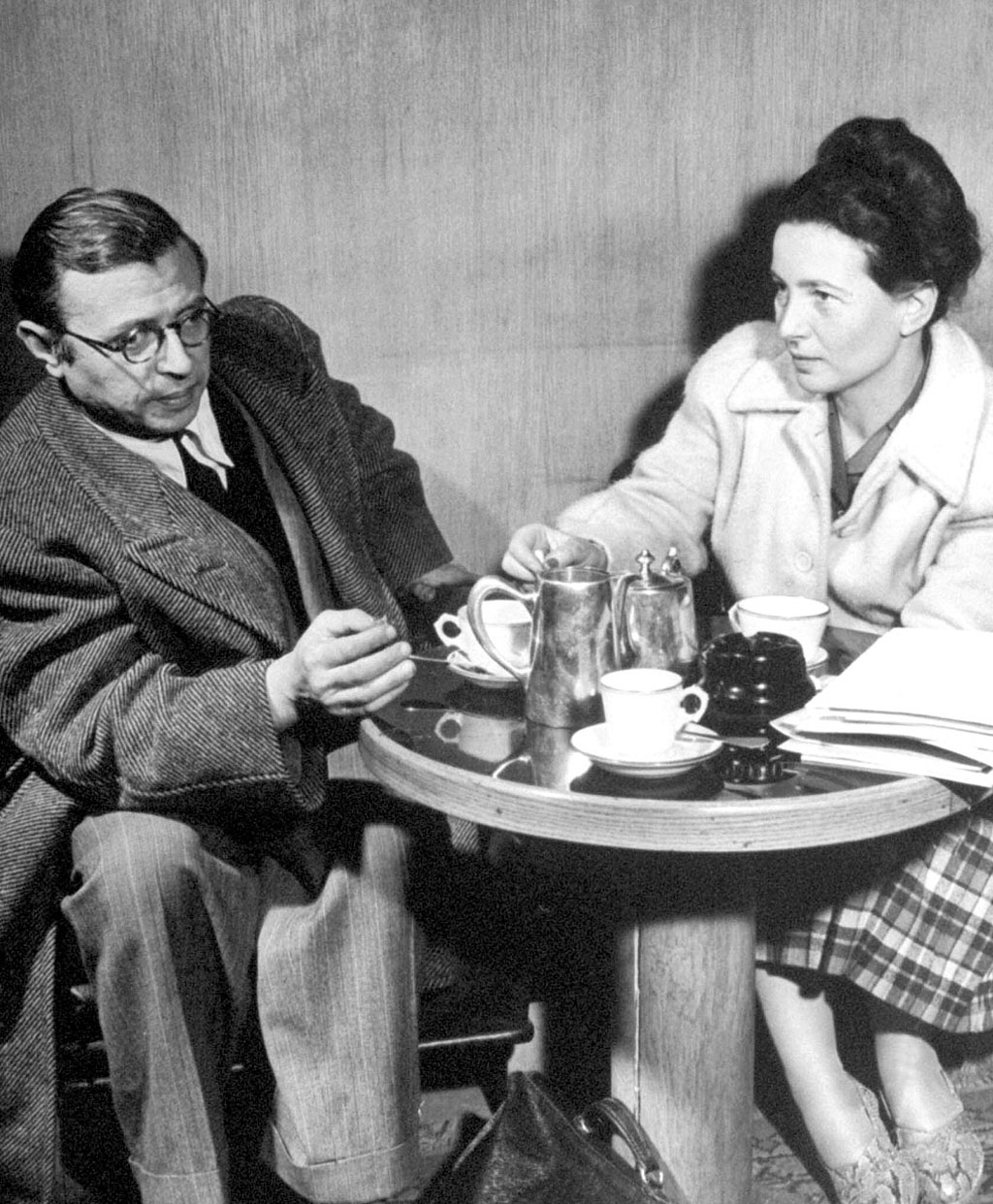19-06-23 // NEW SOCIAL URBANISM

Jean-Paul Sartre and Simone de Beauvoir, 1946
Photo by David E. Scherman
Bernd Upmeyer defined a new topic for MONU‘s coming issue on “New Social Urbanism”:
Although the French existentialist philosopher and writer Jean-Paul Sartre could have easily worked from his home or from one of the hotels in which he lived most of his life, he famously did most of his writing in cafés. He evidently preferred the social life of coffeehouses despite its drawbacks due to the noise and other distractions.
Since the start of the global coronavirus pandemic very few things have been discussed as passionately as how and where we should work in the future. What becomes ever clearer is that after the original euphoria about remote working, most people – although there are few exceptions, such as people with small children or domesticated animals – started longing for the socialising, companionship if not friendship, and shared experiences at workplaces, escaping the social isolation of home. Richard Sennett sees that kind of isolation increasing and as an important negative effect of the pandemic as he explained in our interview with him in MONU #33. The promises of our hyper-individualised societies, particularly in the Western World, seem to reveal ever more shortcomings. Marx might have been right that human beings are intrinsically, necessarily, and by definition social beings who, being gregarious creatures, cannot survive and meet their needs other than through social co-operation and association, because we are “political animals” that find our happiness by interacting with those around us, as was claimed by the Greek philosopher Aristotle more than two thousand years ago…
… continue reading on MONU’s website.